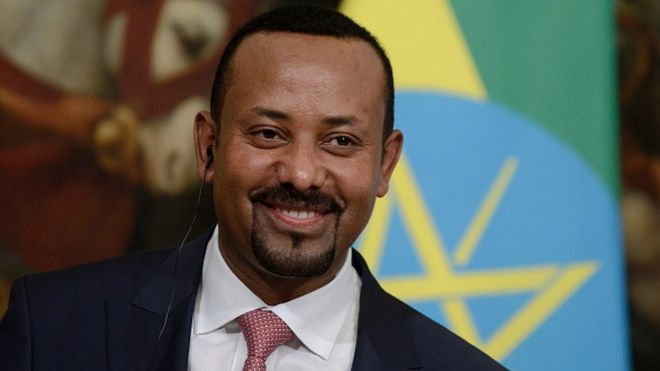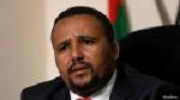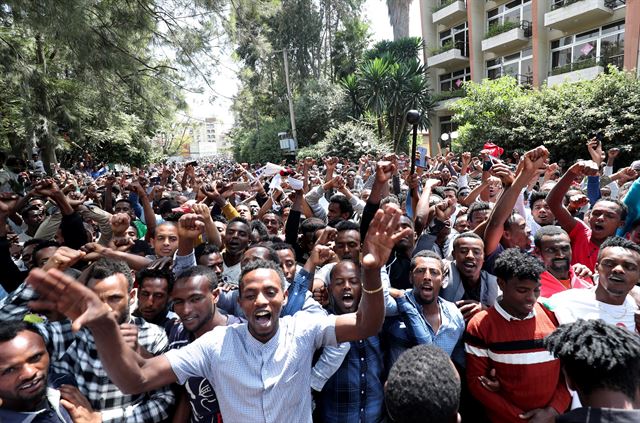In Ethiopia, anti-government protests have killed 67 people. The protests are against the Ethiopian Prime Minister Abiy Ahmed Ali. Abiy Ahmed has ended decades-old authoritarian rule in Ethiopia and released thousands of political prisoners after taking office in April 2018. In addition, he won the Nobel Peace Prize in 2019 for various political reforms. Therefore, such strong protests against him are attracting more attention around the world. Why did he face an anti-government resignation protest less than 2 weeks after winning the award?
1. Abiy Ahmed and Jawar Mohammed
a. Who are They?

Abiy Ahmed is the current Prime Minister of Ethiopia. He has been trying to end authoritarian rule and has also brought back journalist Jawar Mohammed, and other opposition figures, who had been in exile after being branded as terrorists against the previous government. He also won the 2019 Nobel Peace Prize for drawing up a peace treaty with neighbor country Eritrea, which has been in a territorial dispute with Ethiopia for more than 2 decades. Eritrea was annexed by Ethiopia in 1952 and became independent in 1993 after a 30-year of struggle. Since then, multiple conflicts broke out over the border between 1998 and 2000, killing more than 70,000 people on both sides. The two countries declared an end to the war in July 2018 on the back of his push for reconciliation with Eritrea. It finally ended the two-decades of military confrontation. The Nobel committee said it has decided to give the Prize for implementing a decisive initiative to work toward peace and international cooperation, especially to resolve the border dispute with Eritrea.

Jawar Mohammed is human rights activist for the Oromo tribe and the founder of the independent Oromia Media Network (OMN). He has formed anti-government public opinion since the previous government, claiming that some tribes are being discriminated against. Jawar Mohammed is the leader of the protest that has drawn the former regime’s government, and he has public support in Ethiopia. He seems likely to run in next year’s general elections.
b. Their Political Relationship
Prime Minister Abiy Ahmed and Jawar Mohammed have had friendly relations. Jawar Mohammed was able to return to Ethiopia due to the lifting of the entry ban by the new Prime Minister. However, their relationship has deteriorated recently. On October 22th, Abiy Ahmed fired a blow at Jawar in the parliament of Ethiopia, saying, “If a person who doesn’t have an Ethiopian passport tires to harm our peace and security, we will take action,” Abiy targeted Jawar, a U.S. citizen, warning that “an unknown media owner is instigating racial unrest”. As of October 22th, after the Prime Minister Abiy Ahmed won the Nobel Peace Prize, the relationship between the two rapidly soured. Earlier, Jawar Mohammed has made some excessive demands, including calling for the recognition of the Oromo language as Ethiopia’s language of business.
2. What is Happening in Ethiopia?
a. The Anti-Government Protests
According to an AP report on October 26th, the anti-government resignation protests by proponents of Jawar Mohammed, which began on October 23rd, have caused a total of 67 casualties by only the 25th. Ethiopian provincial police chief Kepjalu Tepe said five police officers were among the casualties. The AP reported that the actual death toll must be higher than that, as new reports of deaths continue to come in, which they failed to identify. The protest began in the capital city of Addis Ababa on October 23rd and spread to neighboring cities Adama, Harar, and Ambo the following day. The protests used violence, and police opened fire on the protesters. Ethiopia’s Defense Ministry said it will deploy troops in each of the 7 regions to restore order. Ethiopian police say the protests are over, but Amnesty International says reports of violence are still coming in. Meanwhile, Prime Minister Abiy Ahmed has come under fire for not making any special effort to resolve the situation despite the intensifying protests and the loss of many lives. Abiy Ahmed is said to have left Ethiopia during the protests to attend the first summit of the Russian president on October 24th. The New York Times reported that Prime Minister Abiy Ahmed has been criticized for not making any effort to change the situation of his country.
b. The Conflicts of Ethnic Groups in Ethiopia

The most likely cause of the protests is Ethiopia’s deep-rooted tribal conflict. There are now more than 80 tribes in Ethiopia. Therefore, the concept of being Ethiopian is a nation-oriented concept rather than one of ethnicity. Given the proportion of the population among them, the Amhara and the Oromo are two main ethnic groups. Ethiopia’s core ethnicity is the Amhara tribe, which has been the central group of the country since the days of the Ethiopian Empire. Currently, the official language of Ethiopia is Amharic, and they have a lot of cultural influence. The Oromo tribe, which includes Prime Minister Abiy Ahmed and Jawar Mohammed, account for about 34.5% of the country’s population, making it one of the largest tribes in Ethiopia. But the Oromo has so far been politically marginalized and called for segregated independence. Then, when Abiy Ahmed took office as prime minister in 2018, Jawar began to try to increase the influence of the Oromo. As mentioned above, Jawar called for the government to adopt the Oromo language as a language of business used by government officials. But Abiy Ahmed refused to do so as he is a person who values fairness with other tribes, and the relationship between the two began to show conflict. Jawar Mohammed told AP that “I think Prime Minister Abiy Ahmed is trying to turn Ethiopia back in the way of old authoritarian rule. He’s showing early signs of dictatorship and even intimidating close associates who have helped him if he doesn’t agree with their policies or ideologies.” As the nation’s strong control disappeared due to Abiy Ahmed’s political reforms, violent clashes between ethnic groups are increasing. Racial hate speech is rampant on social media, and lawlessness is also frequent. Since Ethiopia is Africa’s second most populous country and has diverse ethnic groups, ethnic conflict has continued unceasingly. In fact, according to Reuters, at least 21 people were killed and 61 injured in a conflict between Oromo and a minority of Somalis in southern Ethiopian in 2018. The Oromo is the majority of the peasants, so conflict arose over control of the land with the mainly grazing Somalis.
The Ethiopian protests have drawn more attention from around the world, possibly due to the fact that Prime Minister Abiy Ahmed, the target of the protests, has won the Nobel Peace Prize. He showed his sincere efforts for his country. Politically and ethnically, he took the lead to provide a better society than in the past. In return, he was rewarded with a valuable prize, the Nobel Peace Prize. However, there are still people who are against his policies and government. They are now staging massive anti-government protests in Ethiopia. Some also predict that the protests will affect the general elections scheduled for May next year, given the fact the both Abiy Ahmed and Jawar Mohammed are from the Oromo tribe, which could split the base of support amongst the Oromo. So far, the Prime Minister Abiy Ahmed and the Ethiopian government have not made any public comment on the casualties. Rather than judging which side is right or wrong, it is his new homework to solve not only simple political issues but also ethnic and religious conflicts together.
Park Ji-eun
jipark0810@cau.ac.kr

